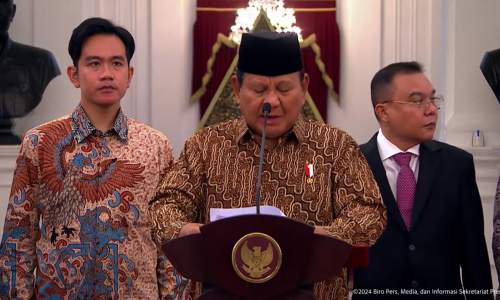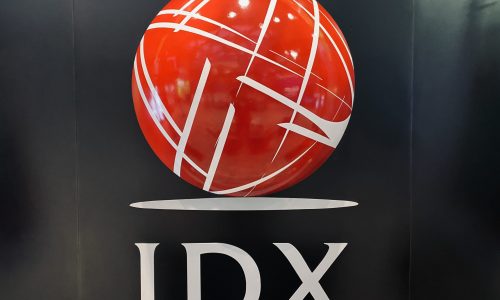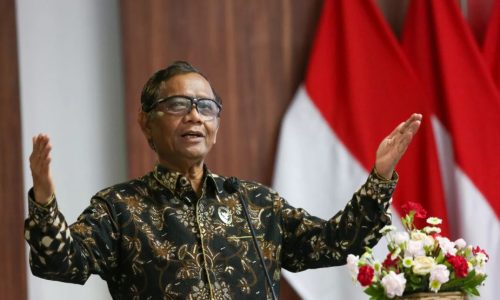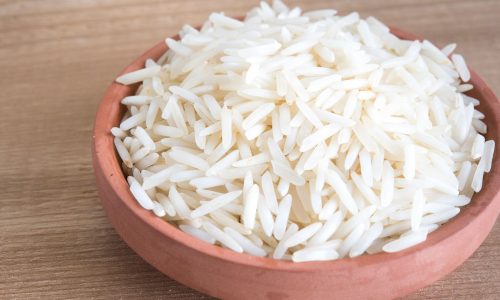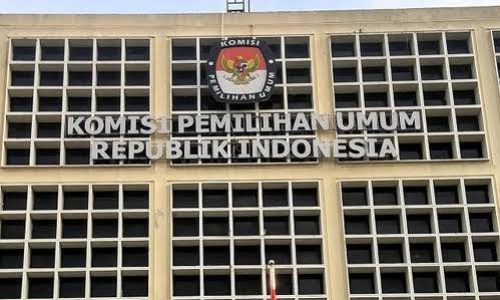In nearly the past three years, businesses have juggled to survive amid the ongoing COVID-19 pandemic. When the pandemic hit the world hard, including in Indonesia, governments imposed lockdown, restricted people’s movement and consequently limited operational hours of shopping centers.
This policy, eventually, affected retail industry as well as cosmetic industry.
The adaptation of the new habits due to the pandemic has shifted shopping patterns from offline to online. This can be seen from the increase in online transactions for cosmetic products by 80%, according to the Industry Ministry’s statement.
“Social distancing causes consumers to spend more time at home, so that they take more time to care for their skin, body and hair. As a result, spending on demand for home care is increasing to replace the needs of salons and spas,” said the ministry’s Director General of Small, Medium and Multifarious Industries, Gati Wibawaningsih, on November 24, 2020.
Data from Statistics Indonesia (BPS) revealed that in the first quarter of 2020, the performance of the chemical, pharmaceutical and traditional medicine industries (including cosmetic sector) saw a 5.59% growth. In the midst of COVID-19 pandemic pressure, this manufacturing group was able to make a significant contribution to foreign exchange through its export value which reached US$ 317 million in the first semester of 2020, a 15.2% increase from the same period in 2019.
Impact of COVID-19 pandemic
Mustika Ratu, a long-standing company in the cosmetic industry since 1975, had seen an increase in sales in 2019 of IDR 305,225 million. The figure increased to IDR 318,408 million in 2020 and IDR326,795 million in 2021.
However, the company suffered a decrease in net sales in the first quarter of 2022, recording IDR 166.89 billion. In Q1 2021, its net sales were IDR 176.32 billion and dropped to IDR 41.33 in 2020. The company suffered a deficit of IDR 6.77 billion in 2020.
Meanwhile, Wardah – with its parent company Paragon Technologies Co. Ltd. based in Taiwan – had a revenue in 2019 worth TWD 546.88 million, in 2020 worth TWD 684.6 million and in 2021 worth TWD 800.1 million.
None of the companies responded to interview request from Indonesia Business Post until the deadline.
“Due to the pandemic, cosmetic industry in Indonesia has increased a lot. There are many new brands, new product lines and they are opening up the beauty community again. There are more segments not only for women but also for men,” beauty influencer Gebi Gabriella told the Post on August 14, 2022.
Another beauty influencer Putri Larassaty, who has 2,257 followers in her Instagram account, observed that the change of lifestyle due to the pandemic has also changed cosmetic industry. She said many people were refrained from going out, thus using less makeups during the pandemic.
“During the pandemic, women wear minimal makeup and they don’t buy makeup anymore during those days. That’s what my friends and I have experienced. So, our spending on makeup has dropped drastically. However, as we are required to wear [medical] masks whenever we go out, we are experiencing skin problems such as pimples. People then buy skincare,” she explained to the Post on August 2, 2022,
Using social media
Cosmetic industry players – the existing and the emerging players – have tried to find ways to promote their products, including by using social media. When cosmetic brands previously promoted their products through advertisements, they now switched to using brand ambassadors and influencers.
“Personally, I think it’s very important for brands not just put ads on TV, but to involve influencers or celebrities or brand ambassadors. [Influencers/celebrities/brand ambassadors] Followers must be curious, wondering if this [the product] is really worth it or not… Well, the ones who tell you are celebrities, influencers and reviewers. So, people nowadays buy [cosmetic products] usually not because of the advertisements but because of people’s testimonials,” Larassaty said.
“It’s very important, especially at the beginning of COVID-19 pandemic that the ones who helped many business owners [by offering] free endorsements or free reviews are these beauty enthusiasts. The public who previously didn’t know a certain product would eventually recognized it. This review from beauty reviewers will help us find the right product depending on our facial skin texture,” Gabriella said.
As the government has eased restrictions on social gathering, thousands of visitors flocked the Jakarta Convention Center on July 28-30, 2022, to attend the Jakarta x Beauty 2022 exhibition. The exhibition featured products from over 200 local and foreign brands and also talk shows and meet influencers on beauty products.
Switching to e-commerce
Indonesia’s market has been considered as one of the largest in Southeast Asia. Its population in mid-2022, according to Databoks, was about 275.77 million people.
“More than 74% of consumers in Indonesia choose to shop online. This causes e-commerce trade transactions in 2021 to reach IDR 401 trillion,” Arsjad Rasjid, Chairman of the Indonesian Chamber of Commerce and Industry (Kadin), said during a panel discussion with the Indonesian Internet Service Providers Association (APJII) on June 9, 2022.
Meanwhile, the projection for digital economy in Indonesia would reach US$100 million in 2025 as a result of the internet penetration in Indonesia that has risen to 77%.
Competing brands in Indonesian market
With the increasing globalization, internet penetration and digitization efforts in Indonesia, the cosmetic industry has become a more competitive market. New brands are challenging the existing brands over quality.
The Food and Drug Monitoring Agency (BPOM) explained that currently, the distribution permits issued by the agency was bigger for domestic industries. The number of distribution permits for cosmetics as of August 31, 2022, reached 63,684 and is expected to continue to grow beyond the number of marketing permits issued in 2021.
Based on the August 2022 data, the comparison of the percentage of local and imported cosmetics at BPOM is 62% for local products and 38% for imported products. From the data on cosmetics industry, there were 2,770 business actors who carried out cosmetic notifications and 20% of them were micro-, small- and medium-enterprises.
Existing cosmetic giants such as Mustika Ratu and Wardah are competing domestically at home and overseas.
“For now, there are a lot of local products that are booming and growing. Honestly, it’s really hard to compare which one is the best because each product has its own plus points,” Gabriella said.
According to Larassaty, domestically made products are more affordable and accessible. However, when she tried to buy foreign brands online, many of them are fake products made by illegal manufacturers.
“Local skincare is cheap and the chance to get fake goods is slim. If it’s from abroad, if you don’t buy it from the official store, it’s a bit risky,” she said.
Larassaty advised potential beauty product buyers to check on bottle code and packaging quality of foreign products. She also recommended to notice any effects when applying beauty products on one’s skin. However, for newcomers to cosmetic products, they may find it difficult to notice.
“That’s scary, because the contents are similar. For new consumers who bought it, they won’t notice that it’s not original,” she added.
Consumers should beware of illegal products
With many brands flocking the market, buyers and distributors must be aware of illegal products available in the market. According to BPOM, illegal cosmetic products are those distributing in Indonesia, but without obtaining distribution permit from BPOM.
BPOM is still monitoring the market for illegal cosmetic products. Currently, there are around 220,000 items of cosmetic products notified at BPOM. The number of registered cosmetics in 2020 increased by 2% compared to 2019. In 2021, there was a 28% increase compared to 2020. The first half of 2022 also saw an 8% increase than the first semester in 2021. It showed that there were more and more products that obtain distribution permits and fill the Indonesian cosmetic market.
BPOM as an institution have had contributed so much to the supervision of illegal products in Indonesia.
Firstly, BPOM is still cutting off the distribution of illegal cosmetics and/or containing hazardous materials, through efforts to cut the supply and demand chain.
Secondly, BPOM also increases its role to raise awareness of the community through Information, Communication and Education (KIE). This is to disseminate information to the public by utilizing various media, including social media and online media that are booming/trending in the society.
Thirdly, BPOM conducts cyber patrol or actively supervises the online market. BPOM is following up on the supervision results by submitting a request for website closure/blocking/recommendation for takedown links to the Ministry of Communication and Information.
Promoting local products
Larassaty also encouraged costumers to try locally made beauty products since foreign brands may not suitable for Indonesians’ skins.
“In my opinion, local products have developed very, very much so that all skin problems have products for that. Since this is local products, the Research and Development division of the company use local respondents,” she said.
“When I buy local products, they are more suitable for my skin. But when I buy skincare from Korea or Japan, some of them feel too sticky. They are too moist, or even oily and greasy. It’s understandable though because the weather conditions are different,” she added.
Meanwhile, Gabriella said that local and foreign brands were quite competitive.
“For now, it’s quite competitive, especially in terms of price and quality and the marketing is okay. I’m confused as to what else needs to be improved. Maybe the level of flexibility, but like that it will definitely affect the selling price. So, now it’s really good,” she said.



